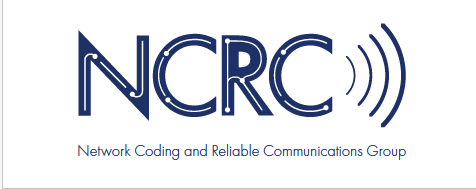Network Coding and Reliable Communications Group Seminar
In order to satisfy the continually increasing capacity demands of emerging wireless services, future mobile cellular networks shall operate with full frequency reuse to achieve high spectral efficiencies. However, inter-cell interference becomes soon a limiting factor. To evaluate various system concepts for spatial interference management on a multicell basis, we developed a system-level simulation tool chain. This tool chain covers state-of-the-art channel modeling
as well as physical and medium access control layer emulations. As a main contribution of this work, we aim at direct and quantitative comparison of the different interference management techniques. Our study covers interference canceling receivers as well as frequency selective scheduling and MIMO mode switching to enable multi-user diversity under limited feedback precoding. The commonly used full channel knowledge assumption is used for the concept
of base station coordination, while closed-loop joint transmit beam-forming removes the co channel interference between neighboring base stations. Finally, non-linear dirty paper precoding, known to achieve the broadcast channel capacity, delivers the upper bound for our studies.
Lars Thiele (lars.thiele@hhi.fraunhofer.de) received the Dipl.-Ing. (M.S.) degree in electrical engineering from the Technische Universität Berlin, Berlin, Germany, in 2005. He joined the Fraunhofer Heinrich Hertz Institute (HHI) in September 2005. In 2013 he received the Dr.-Ing. (Ph.D.) degree from the Technical University of Munich (TUM). He has contributed to receiver and transmitter optimization under limited feedback, performance analysis for MIMO transmission in cellular ODFM systems, fair-resource allocation and CoMP transmission under constrained CSIT. Lars has authored and co-authored about 40 conference and journal papers as well as a couple of book chapters in the area of mobile communications. He leads the System Level Innovation research group at Fraunhofer HHI. Fraunhofer Heinrich Hertz Institute (HHI)



0 Comments